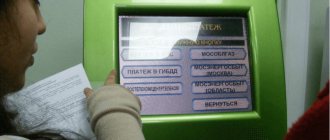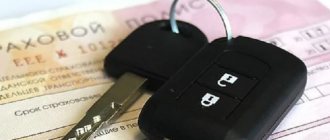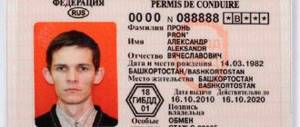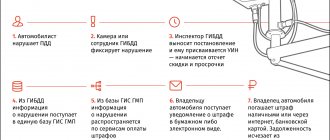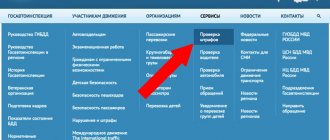Home/Appealing traffic police fines/Collection by bailiffs
The penalty for violating traffic rules is the imposition of fines. Their size is strictly regulated by the legislative framework of the Russian Federation and cannot exceed the established amount for each violation. The use of fines allows you to discipline car owners and motivates them to comply with existing traffic rules.
When can bailiffs collect a traffic fine?
Attention:
If 2 months have passed since the decision to impose penalties from the State Traffic Safety Inspectorate came into force, and the negligent driver has not repaid the debt, then the FSSP begins to collect the indicated amount. The documentation reaches the Federal Bailiff Service 10 days after the fine is issued. But the initiation of a case of forced collection begins only after the period allotted to the driver for voluntary payment of the receipt has passed (60 days, not counting the appeal period of 10 days, for a total of 70 days).
What measures are used by bailiffs to collect debt?
- If you have unpaid fines in the amount of 10 thousand rubles or more, you will be prohibited from leaving the territory of our country. And only after the debt is repaid will this ban be lifted.
- Deprivation of the right to drive vehicles. This enforcement measure does not apply to people whose income is directly related to driving a car. For others, the opportunity to get behind the wheel will appear only after the debt is paid off.
- The debt can be collected from existing accounts, wages, and other sources of funds.
If a motorist receives a fine, there are several options:
- Pay the amount within the first twenty days from receiving the fine. In this case, it is necessary to pay only half of the fine issued. It is worth clarifying whether such a possibility is provided for a specific case.
- Make payment within sixty days after drawing up the decision on the violation.
- Go to court to appeal an illegally issued fine.
6 violations in which full payment of fines cannot be avoided:
- driving a vehicle that is not registered;
- driving while intoxicated;
- repeated speeding;
- repeated failure to comply with the signs;
- repeated entry into oncoming traffic or onto tram tracks;
- people were injured in a traffic accident.
After a violation has been committed, a protocol is drawn up; it will come into force after ten days, provided that it is not disputed. Then within seventy days you can pay the fines without consequences. Next, traffic police fines are collected by bailiffs.
Rights and responsibilities of bailiffs
Representatives of the FSSP have the right to collect debt from the debtor, which includes:
Attention! If you have any questions, you can chat for free with a lawyer at the bottom of the screen or call Moscow; Saint Petersburg; Free call for all of Russia.
- the amount of the traffic police fine;
- the cost of the work of the FSSP representative;
- monetary penalties and sanctions imposed for violation of deadlines for payment of receipts;
- other penalties that are regulated by the current legislation of the Russian Federation.
Bailiffs can work closely with representatives of other government agencies and institutions to obtain the necessary information about the debtor and his location.
IMPORTANT
Representatives of the FSSP do not have the right to demand money from the violator in excess of the amount determined based on the analysis of each specific traffic police fine.
Rights and obligations of the debtor
After the violator receives a decision to pay a fine from the traffic police, he is obliged to repay the debt within 2 months. If the driver does not agree with the actions of the traffic police inspector, then you can appeal the decision on the offense within 10 days from the date of its issuance.
For your information
If it is impossible to repay on time, the driver can write an application to the traffic police with a request for a deferment. According to the Code of Administrative Offenses of the Russian Federation Article 31.5. it can be 1-3 months.
How to challenge a traffic police fine?
If a motorist does not agree with the fine issued to him, it is necessary to appeal the decision on the violation within ten days, otherwise the process of collecting traffic police fines by bailiffs will begin. If the deadlines are not met, it is necessary to explain with the help of a petition what events prevented the appeal from being carried out on time.
There are situations in which you can file a complaint through the Autocode portal:
- parking was done in a place not intended for this purpose;
- The fine was issued by a traffic police officer.
Complaints can be made in person or sent through post offices.
The procedure for collecting traffic police fines by bailiffs
The procedure for interaction between representatives of the FSSP and debtors is regulated by Federal Law No. 229 “On Enforcement Proceedings” dated October 2, 2007.
The entire procedure for collecting unpaid receipts for traffic police fines by bailiffs can be divided into several main stages:
- Transfer of documents. This occurs within 10 days from the moment the fine is issued. The resolution clearly indicates the amount of the traffic police fine, the date of the violation and information about the person who committed the violation of traffic rules.
- Waiting period. It is 2 months from the date of entry into force of penalties. During this period, the bailiffs do not initiate forced collection of the debt, giving the driver the right to voluntarily pay the due amount.
- If the violator persistently ignores the end of the period allotted for paying traffic fines and has not asked for a deferment in advance, then the bailiffs will begin the enforcement procedure. In this case, funds are transferred from the debtor’s bank account to pay the traffic police fine in favor of the state. If it is not possible to withdraw money from a bank card, an inventory and assessment of the debtor’s property takes place. Subsequently, the described property will be sold, and the proceeds will be used to pay off the debt.
Attention
Even at the stage of initiating enforcement proceedings, the debtor has the opportunity to voluntarily pay off the debt on traffic police fines.
How much can they withdraw from the card?
It depends on what type of card we are talking about. If we are talking about a regular debit card on which a person stores his personal savings, the amount of write-off can be maximum. In this case, the person will be charged the entire amount to pay off the debt. This is regulated by Art. 70 Federal Law No. 229.
More on the topic: Can the traffic police deprive you of your license using a camera?
Funds can also be debited from a credit card. Since it is also attached to the current account of an individual. In some cases, the balance may even go negative if the banking system allows such operations. This is the worst option.
When bailiffs deal with wages, they can collect no more than 50% of labor income. This procedure is regulated by clause 2 of Art. 99 Federal Law No. 229. It is worth noting that we are talking specifically about wages. If a person stores different savings on one card, then the amount necessary to repay the debt will be written off from it. Except for the last payment, which is subject to a 50% cap.
You also need to take into account that the write-off amount will be greater than the actual fine. The bailiff service may charge an additional 7%, but not less than 1,000 rubles of the debt amount. This may also include the costs of enforcement proceedings, which are established on an individual basis in accordance with Art. 116 Federal Law No. 229.
Pay off fines in advance if they arise. This will not only help you avoid sudden debits from your plastic card, but will also protect you from the imposition of more serious penalties. In particular, the debtor’s car may be temporarily seized and sent to a fine yard if the amount of debt on fines and other penalties exceeds 10,000 rubles.
It is most profitable to pay off the fine no later than 20 days from the date of occurrence of the administrative offense. In this case, the driver can only pay 50% of the declared amount, and the fine will be removed.
Decision to initiate enforcement proceedings
The decision to initiate enforcement proceedings is made by the judge based on a petition from an authorized person. The violator is given a period of 60 days to voluntarily repay the debt. If payment is not received, a petition to initiate enforcement proceedings will be sent to the court. The period allotted for initiating enforcement proceedings to collect traffic police fines is 3 days. A copy of the judge's decision is sent to an authorized person and is also transferred to the FSSP.
Reimbursement order
If the fine was not paid on time, then FSSP representatives begin the forced collection procedure after 5 days. Consequently, within 5 days the driver has the last opportunity to pay the traffic police fine on a voluntary basis.
Experts advise keeping your payment receipt. Information about payment of a fine does not always enter the database in a timely manner. If the traffic police fine has already been paid, and the bailiffs begin the enforcement procedure and send the debtor a ruling on compensation, then you should immediately visit the FSSP. You must provide a receipt of payment, which will serve as evidence and grounds for termination of enforcement proceedings.
Attention
If the debtor’s payment deadline expires and the amount of the traffic police fine is repaid on time, then experts recommend immediately sending a copy of the receipt by registered mail to the bailiff service.
The fine was paid on the State Services portal, but the debtor did not know about it
A notification on the website gosuslugi.ru about the repayment of a fine may appear in the event of a payment that the debtor himself was not aware of. For example, a person received a salary on a card. After the funds arrived on the balance sheet, the bank automatically withheld the amount of debt. If the write-off message goes unnoticed, the person will not know that his fine has been paid off. In cases where the amount of write-offs is insignificant, tracking the fact of payment can be quite problematic. To do this, you will need to analyze write-offs over the coming days. You can contact your bank's support service and get a detailed breakdown of expenses.
Collection of administrative fines by the FSSP
The collection of administrative fines deserves special attention. According to the Code of Administrative Offences, 60 days are allotted to pay off an administrative fine. If payment is not made within the specified time frame, additional penalties may be applied to the violator (Article No. 20.25 of the Administrative Code). These include:
- increase in the amount of recovery by 2 times;
- arrest up to 15 days;
- compulsory work for up to 50 hours.
It is necessary to clearly monitor the repayment period of the traffic fine debt. If it falls on a weekend or holiday, the period is transferred to the next working day. Experts recommend that you independently calculate the final repayment period of the debt to avoid the imposition of repeated sanctions.
For your information
If the violator requests a deferred payment, he must pay the specified amount 2 days before the end of the term.
If established deadlines are violated, bailiffs actively interact with other government bodies. This allows you to find the violator and collect the debt from him.
Forced collection of traffic police fines by bailiffs
If the violator refuses to repay the debt on time, information about this goes into the GIS database. Based on this, the authorized person prepares an appeal to the court that issued the decision on monetary recovery. A copy of this document is automatically sent to the FSSP.
After receiving the appeal, the bailiff initiates enforcement proceedings, of which an official notification will be sent to the violator. From the moment of receipt of notification of the initiation of enforcement proceedings, the debtor has 5 days to voluntarily repay the debt. If the required amount is paid, then the enforcement proceedings for the forced collection of the traffic police fine will be terminated.
IMPORTANT
Even if the offender voluntarily repaid the fine within 5 days after the initiation of enforcement proceedings, he is also required to pay a mandatory fee. Its size is 7% of the fine, but cannot be less than 1000 rubles.
Considering that traffic police receipts are not very large sums of money, the debit can be made forcibly from the debtor’s bank card. The FSSP representative sends to the accounting department of the organization where the violator works a collection order and an order to withhold the specified amount in favor of the state.
If the offender does not have a permanent place of work, the bailiffs ask the tax service about the property, bank accounts and cards belonging to the debtor. If accounts are found, the bailiff sends a resolution and order to write off the funds to the banking institution. Then an inventory is made, forced seizure and subsequent sale in order to pay the fine.
Is it possible to return money written off by bailiffs?
Another case when money is written off illegally is a “double” fine. In this case, the driver manages to pay the money for the offense within 60 days, but he does not submit the payment receipt to the traffic police. In turn, the report on the receipt of funds is not registered in the GIS GMP database. This can happen for various reasons. As a result, the fine is collected from the driver again, but through the FSSP.
Things like this don't happen often. But if you are faced with such injustice, do not be discouraged. The truth is on your side. However, you will have to fight for it. Depending on how much time has passed since the re-write-off, you can use two ways.
Method No. 1: through the FSSP
If you responded promptly, the money can be returned through the FSSP. The algorithm of actions in this case:
- Through the government services website or the FSSP portal, you can find enforcement proceedings regarding your fine. Specify the contact details of the contractor assigned to your case. As a rule, the bailiffs' website should indicate the work phone numbers of employees.
- Contact the responsible bailiff and explain the current situation.
- Make an appointment at which you need to show a receipt for paying the fine on time.
- If the FSSP did not have time to transfer the funds to the traffic police account, they can be returned. To do this, you need to fill out a free form application for a refund. In it you need to indicate the bank details of your plastic card.
More on the topic: Checking the trunk of a car by a traffic police inspector: in what cases is it legal and necessary?
Bailiffs are required to consider your application within 10 days. This provision is regulated by clause 11 of Art. 70 Federal Law No. 229. Return periods are not regulated. If the service is delaying the transfer of money to your account, you can contact the head of the FSSP unit directly.
Method number 2: through the traffic police
A more complicated situation is when the money has already been transferred from the FSSP accounts to the traffic police. In this case, the return algorithm will be slightly different:
- Request from the FSSP a copy of the payment documents for the transfer of funds to the traffic police.
- Find the Main Traffic Police Department in your city or region. It is there that you will need to submit an application for a refund of the “double” fine. A sample for filling out an application can be viewed on the website of the Ministry of Internal Affairs, or obtained at the place of application. The paper must state the reasons why the funds were withdrawn again.
- Attach to the application copies of: passport, original receipt for payment of the fine, TIN, documents from the FSSP, bank account statement about the debit of FSSP funds, plastic card details, and a copy of the resolution due to which the fine was assessed.
- Your application must be reviewed and the funds returned to the card.
If you contact the traffic police, the return period is also not regulated.
Collection deadlines
If the debtor persistently hides from representatives of the FSSP (changed his place of work, place of registration or residence, etc.), then the statute of limitations for enforcement proceedings is 2 years. After this period of time, the bailiffs will not be able to recover the required amount from the violator.
That is, if from the moment the resolution comes into force, the bailiffs have only two years to find the debtor and forcefully collect from him payment of the traffic police fine. In this case, an inventory of property, seizure of securities, etc. can be carried out. After the end of 24 months from the date of entry into force of the resolution, it is not possible to collect the debt. (Article 31.9 Part 1 of the Code of Administrative Offenses of the Russian Federation).
Expired statute of limitations for debt on public services
Another common reason for a fine payment message to appear is the expiration of the debt. Some types of fines have a statute of limitations. This rule applies mainly to minor violations associated with minor administrative penalties. The standard debt period is 24 months. Bailiffs do not always have enough time to collect fines assessed for minor violations. Therefore, priority is given to more serious crimes and the execution of their punishments.
If the amount of the fine is small, then the bailiffs may not get to the debtor within two years due to high busyness. In this case, the debt will be written off automatically after the expiration of the period regulated by law. You should consult your bailiff for more detailed information. A legal entity is recommended to contact an in-house lawyer and ask him whether the proceedings for which the debt was repaid without payment have a statute of limitations.
Is it possible to appeal the collection of a traffic fine by bailiffs?
Many motorists are interested in the question of whether it is possible to appeal the collection of a fine by the traffic police by representatives of the FSSP. This need arises if the receipt has been paid, and the bailiffs have written off the money from the card or current account, made an inventory of the property and seized it for the purpose of subsequent sale. To restore justice, you should submit an application to one of the authorities:
- FSSP to a senior manager (senior bailiff);
- Court;
- To the prosecutor's office.
In most cases, it is possible to resolve the issue by contacting the senior bailiff. Confirmation of payment of the debt must be provided, which will become the basis for termination of enforcement proceedings. If it is not possible to appeal the actions of the joint venture, then experts recommend filing a petition with the court.
For your information
It is advisable to contact the prosecutor's office if the actions of the FSSP representative are illegal and threaten the life or health of the offender (his family members).
Step-by-step instructions for appealing
If the driver decides to appeal the collection of a traffic fine by the bailiffs, then he should follow a simple algorithm of actions:
- competently draw up an application for appeal;
- submit it within the deadlines established by law;
- obtain a court decision.
IMPORTANT
You can appeal only in the first 10 days after the violator learned about the repeated write-off of the debt (Article 122 of the Federal Law-229 “On Enforcement Proceedings”). In the future, you can appeal if the initial deadline was missed for a good reason. For example, due to illness.
The second, important point is the scrupulous preparation of an application to appeal the decision of the traffic police inspector. If the driver has difficulty filling out the form, it would be a good idea to seek the help of a professional lawyer. He will not only help you fill out the application form correctly, but will also suggest the correct model of behavior during the appeal process.
Debt collection procedure
The procedure for withholding various types of penalties, including fines, is defined in the Federal Law of the Russian Federation “On Enforcement Proceedings”. It is carried out in the following order:
- First, information about the fine is sent from the traffic police to the FSSP.
- Next, the corresponding decision is transferred to the bailiff, who acts as the executor in a specific case.
- Within 3 days, the bailiff initiates enforcement proceedings.
- A citizen who commits a violation is given a period to voluntarily pay a fine (5 days). At the same time, he is informed that in the future collection will be carried out forcibly (if he does not pay the fine within the established period of time).
Application to appeal illegal collection of a fine
A completed application to appeal the illegal collection of a traffic fine by the Bailiff Service must contain the following information:
- The header should reflect the name and address of the institution where the driver is applying. Details of the offender (full name, registration or registration address). Information about the authorized person who issued the traffic police resolution.
- Name of paper. It may take the form of a petition or application to appeal the decision of the traffic police. The wording “about illegal actions of a representative of the FSSP” or “about the inaction of a representative of the FSSP service” is also possible.
- Fill out the body of the form. It should reflect information about the decision made. It is also necessary to indicate the date and place of seizure of property and describe the actions performed by the bailiff.
- Provide links to regulations that were violated by the bailiff. You should be especially careful at this point. If you are unable to find regulations on your own, you should seek the help of a qualified lawyer with extensive experience in handling similar cases. It would not be superfluous to record the consequences that resulted from the actions of the bailiff.
- Make a request to cancel the completed action. Add date and signature.
A prerequisite is the provision of the necessary package of documents. It includes:
- Correctly completed payment documents confirming the fact of repayment of debt on traffic police fines.
- A copy of the resolution of the bailiffs who carried out the forced collection of the debt;
- Other documents at the driver’s disposal that can confirm the applicant’s correctness.
For your information,
Experts recommend not delaying the payment process and not letting the situation get to the point where bailiffs are involved in collecting the debt under the traffic police fine.
to appeal the actions of the bailiff.
Controversial situations
A situation often arises when the debt has been paid, but information about this has not reached the FSSP. In this case, the bailiff may request information about the debtor’s accounts and cards from the banking system. And make a decision on forced debiting of money from the current account or card. If it turns out that the traffic police fine was paid twice, then the ideal solution would be to submit an application to the bailiff requesting compensation for damages. The previously paid receipt must be attached to the application. If the FSSP representative fails to act, experts recommend filing a complaint with the prosecutor’s office.


